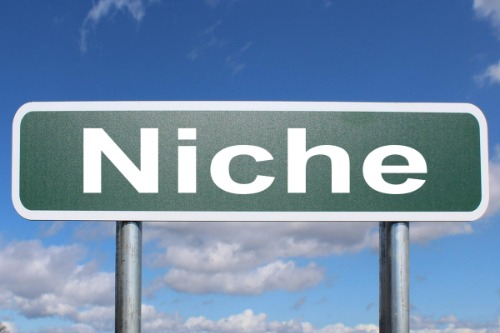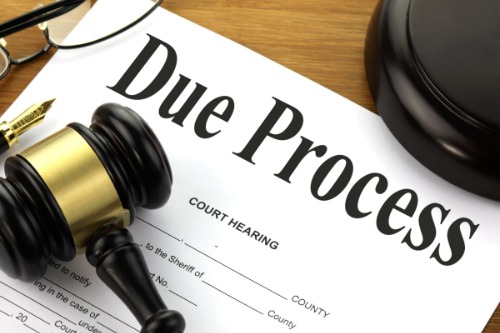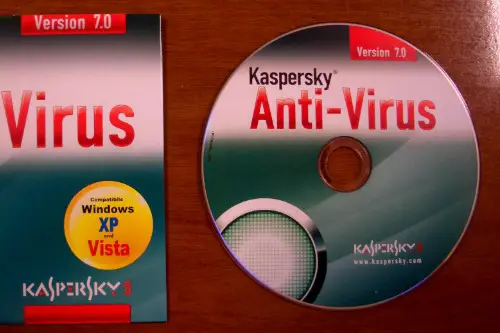1. Aluminum

Americans say “uh-LOO-muh-num,” while most of the English-speaking world says “al-yoo-MIN-ee-um,” Isabella Sterling from Kwintessential explains. That’s because the British spelling includes an extra “i” that Americans dropped in the 19th century. The American Chemical Society officially adopted the shorter version in 1925. So yes, this one’s literally built into the spelling.
To Brits and Canadians, the American version often sounds like nails on a chalkboard. But for Americans, it’s the standard—used in everything from soda cans to foil. It’s not just a pronunciation shift; it’s a spelling evolution. And it’s one that shows how science and culture can shape language.
2. Advertisement

Americans usually say “ad-VER-tize-ment,” while Brits prefer “ad-VER-tiss-ment.” That “-ize” syllable really stands out in American English, giving it more of a promotional punch, according to the Cambridge Dictionary. It’s one of those pronunciation quirks that immediately marks you as from one side of the Atlantic or the other. The British version sounds more subtle and traditional.
This reflects a broader trend: Americans like action-oriented, punchy language. Even the shortened form “ad” is more common in the U.S., while Brits often say “advert.” So the whole concept of selling and promoting sounds different depending on where you are. Even commercials talk differently!
3. Herb

Americans typically pronounce this as “erb,” dropping the “h” altogether, according to Lori Dorn from Laughing Squid. Most other English speakers, including the British, say “herb” with the “h” pronounced clearly. The American version stems from French influence, where the “h” is silent. That French connection stuck around longer in American English than in British.
This one always confuses travelers who think someone’s talking about a guy named Herb. In the U.S., “herbs and spices” sounds like “erbs and spices.” It even gets joked about in British TV shows that poke fun at American cooking. But for Americans, it just sounds right—like parsley, sage, rosemary, and thyme.
4. Route

In the U.S., you’re more likely to hear “root,” especially when talking about “Route 66,” according to Suzanne Smith from WFSU. But in much of the English-speaking world, including Canada and the UK, it’s usually pronounced “rowt.” This can lead to some real confusion during travel or when listening to international accents. Both pronunciations are technically correct, but they carry different cultural baggage.
“Root” sounds more rural and American—think highways, truck stops, and classic road trip movies. Meanwhile, “rowt” has a crisper, more formal ring to it. It also sounds closer to “rout,” which is a completely different word meaning a disorderly retreat. No wonder this one causes so many mix-ups.
5. Leisure

Americans say “LEE-zher,” while the British pronounce it “LEH-zhuh.” That long “e” sound in the American version sets it apart and gives it a more laid-back vibe. It makes sense, too—“leisure” is supposed to be relaxing, right? In the UK version, the shorter vowel makes it feel a bit more clipped and proper.
This is one of those words where the pronunciation can change the whole tone of a sentence. Americans might talk about “leisure time” with a kind of easy drawl. Brits, on the other hand, might mention “leisure centres” with efficiency. The same word, but a totally different energy.
6. Schedule

Americans usually say “SKED-jool,” while Brits go with “SHED-jool.” The difference comes from the Greek origin of the word, which passed through Latin and Old French before landing in English. British English stuck with the softer “sh” sound, while Americans hardened it to “sk.” This change happened during a broader movement to simplify and standardize spelling and pronunciation.
To American ears, the British version can sound overly delicate. But to Brits, the American one may come off as jarring or robotic. Interestingly, the American version aligns more closely with how the word is spelled. That might explain why it’s taught that way in U.S. schools.
7. Garage

Most Americans say “guh-RAHZH,” while many Brits pronounce it “GARR-ij” with a hard “g” and a clipped ending. The American pronunciation leans more French, which is where the word originally came from. Over time, British English adapted it into something a bit more native-sounding. The American version kept that foreign elegance.
It’s funny because both versions sound equally odd to the other group. In the U.S., “garage” evokes suburbia, two-car families, and clutter. In the UK, it might just mean a small service station. So depending on where you are, the word conjures totally different images—and sounds.
8. Privacy

Americans say “PRY-vuh-see,” while Brits tend to go with “PRIH-vuh-see.” That first syllable difference packs a surprising punch. The American version has a sense of assertiveness—“pry” as in guarding against someone prying into your business. The British version sounds a bit more reserved.
It’s not just a sound thing—it’s cultural too. Americans often put a high value on personal space and independence. That might be reflected in the way the word is pronounced. It practically comes with its own “Do Not Disturb” sign.
9. Oregano

In the U.S., it’s “uh-REG-uh-no,” with the stress on the second syllable. In the UK and other English-speaking countries, it’s usually “or-uh-GAH-no,” with stress at the end. This is another word where American pronunciation skews away from the original European roots. British English kept the rhythm closer to the Italian word it comes from.
Americans tend to streamline multi-syllable words for ease. That might be why “oregano” gets the mid-word stress treatment. You’ll hear it tossed around often in American kitchens, especially with Italian-American cuisine. The difference might seem small, but to a trained ear, it’s as distinct as basil vs. “bah-sil.”
10. Tomato

In the U.S., it’s “tuh-MAY-toh,” but across the pond in the UK, you’ll hear “tuh-MAH-toh.” The vowel shift is a classic example of how American English favors flatter, broader vowel sounds. This little red fruit (or vegetable, depending on who you ask) has become a cultural symbol for pronunciation differences. Even the classic song lyric—“You say tomato, I say tomahto”—plays off this exact divide.
Americans tend to stick to pronunciation that’s influenced by Noah Webster’s efforts to simplify English. His dictionaries aimed to separate American identity from British roots. Over time, this helped solidify regional dialects. “Tomato” is just the tip of the linguistic iceberg.
11. Basil

In the U.S., it’s “BAY-zil,” with a long “a,” while Brits say “BAZ-il,” rhyming with “dazzle.” The British pronunciation is actually closer to the herb’s Greek and Latin roots. Americans, however, adjusted the vowel sound to match similar-sounding names and words. It fits in neatly with the American tendency to favor smoother, longer vowels.
The American version sounds like a name—think Basil Rathbone, except Americans would still pronounce his name the British way. Confusing, right? Meanwhile, in the kitchen, the difference is more than flavor—it’s identity. It’s the little things that make even a pasta recipe sound different.
12. Mobile

Americans usually say “MOH-buhl,” almost swallowing the second syllable, while Brits say “MOH-bile,” rhyming with “profile.” In the UK, this is shorthand for a mobile phone, while in the U.S., the word is often used more broadly—think “mobile home” or “mobile app.” The American version drops the final syllable, in a trend you’ll see across many tech terms. It’s quick, functional, and very… mobile.
The British pronunciation feels more complete, almost melodic. But to Americans, that trailing “-ile” might sound overly formal or even old-fashioned. It’s a subtle difference, but it signals how the same word can travel completely different paths. And ironically, both are equally mobile in their usage.
13. Lieutenant

This one throws a lot of people: Americans say “loo-TEN-uhnt,” but the British say “lef-TEN-uhnt.” The British pronunciation likely stems from a historical misreading or phonetic evolution of the word’s Old French origin, “lieutenant.” Americans, on the other hand, leaned more into the actual spelling. So in this case, the U.S. version is more phonetically logical.
This difference is especially noticeable in military dramas and historical shows. If you’ve watched The Crown or Band of Brothers, you’ve probably clocked it. It’s more than just a sound—it’s a signal of allegiance to different linguistic traditions. And it never fails to trip up viewers.
14. Niche

Americans typically pronounce it “neesh,” while Brits often say “nitch.” The British pronunciation sounds harsher and more clipped, while the American version preserves the French origin of the word. This one’s interesting because both versions are common in business and marketing lingo. You’ll hear people talking about finding a “niche market” in either form.
In the U.S., “neesh” sounds more refined, almost upscale. In the UK, “nitch” can come off as more practical or grounded. There’s no consensus on which is correct—it really depends on who you’re trying to impress. Just don’t try to correct someone unless you’re ready for a language debate.
15. Data

Most Americans say “DAY-tuh,” while British English often favors “DAH-tuh.” This might seem minor, but it can make a sentence sound totally different. The American version uses the long “a” sound, aligning with words like “date.” Meanwhile, the British pronunciation gives it a more classical or technical feel.
In tech circles, you’ll often hear both, especially in global teams. Some people even switch back and forth depending on the context. But in general, “DAY-tuh” rules in the U.S. across everything from databases to Star Trek. Yes, even the android says it that way.
16. Pajamas

In the U.S., it’s “puh-JAH-muhz,” with the emphasis on the second syllable. In the UK, it’s “puh-JAAH-muhz,” with a slightly longer “a” in the middle. The word itself comes from Hindi via Persian, originally referring to loose-fitting trousers. The American pronunciation evolved to match more common stress patterns in English.
This is one of those bedtime words that sneaks into everyday conversation with kids and adults alike. To British ears, the American version might sound childlike or overly casual. But in the U.S., it’s just standard bedtime vocabulary. And yes, it totally pairs with “slippers” and “cookies and milk.”
17. Process

Americans say “PRO-cess,” while many Brits say “PRAW-cess.” That first syllable sets the tone—short and clipped versus longer and rounded. The American version matches similar-sounding words like “progress” or “project.” British English tends to preserve older vowel sounds in these cases.
This is one of those business terms that gets tossed around constantly. So depending on the speaker, you might be picturing a flowchart or a posh voiceover. Either way, the word is doing a lot of heavy lifting. And the difference is subtle but surprisingly revealing about how English has evolved.
18. Anti

Americans typically say “AN-tye,” while Brits go for “AN-tee.” This is especially noticeable in compound words like “anti-virus” or “anti-social.” The American version has that strong “-eye” ending, giving it a punchier, more defiant tone. The British one sounds more neutral and relaxed.
In politics or pop culture, these differences can really stand out. Americans might say “anti-hero” with dramatic flair, while Brits keep it subdued. Both forms are widely understood, but they carry slightly different vibes. And honestly, they both sound cool depending on who’s saying them.


